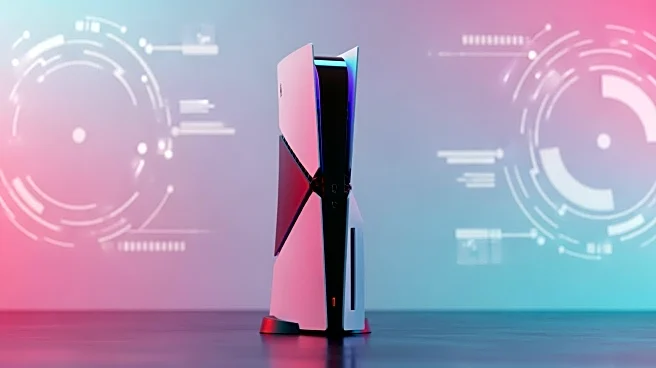What's Happening?
Microsoft's Xbox division is shifting away from the traditional model of console exclusivity, as stated by Xbox President Sarah Bond. The company is increasingly focusing on making its games available across multiple platforms, a move that contrasts with
the strategies of competitors like Nintendo and Sony. This approach is exemplified by the release of games such as Forza Horizon 6 on PlayStation 5, in addition to Xbox and PC. Bond highlighted the success of games like Fortnite, Roblox, and Minecraft, which are available on various platforms, as evidence that gamers prefer accessibility over exclusivity. This strategy aligns with Microsoft's broader vision of expanding its gaming community and adapting to the evolving preferences of players.
Why It's Important?
The shift towards multiplatform availability by a major player like Microsoft could significantly impact the gaming industry. By moving away from exclusivity, Microsoft is potentially increasing its market reach and fostering a more inclusive gaming environment. This strategy could pressure other companies, like Sony and Nintendo, to reconsider their exclusivity policies. For consumers, this means greater access to a wider variety of games, regardless of their chosen platform. Economically, this could lead to increased sales and engagement for Microsoft, as it taps into a broader audience. However, it also raises questions about the future of console-specific identities and the competitive dynamics within the industry.
What's Next?
As Microsoft continues to develop its next-generation Xbox console, there is speculation about its features and pricing, especially in light of recent price increases for Xbox Game Pass and existing consoles. The company is also exploring new hardware options, such as the ROG Xbox Ally X handheld, which suggests a focus on diverse gaming experiences. The industry will be watching closely to see how Microsoft's strategy influences its competitors and whether it will lead to a broader shift in the gaming landscape. Stakeholders, including developers and consumers, will likely respond to these changes, potentially reshaping the market dynamics.
Beyond the Headlines
The move towards multiplatform gaming raises deeper questions about the future of intellectual property in the gaming industry. As games become more accessible, the traditional model of platform-specific titles may become obsolete, leading to a reevaluation of how games are marketed and monetized. This could also influence the development of new gaming technologies and platforms, as companies seek to capitalize on the growing demand for cross-platform compatibility. Additionally, the focus on community-driven games highlights the importance of social interaction in gaming, which could drive further innovation in multiplayer and live-service games.
















